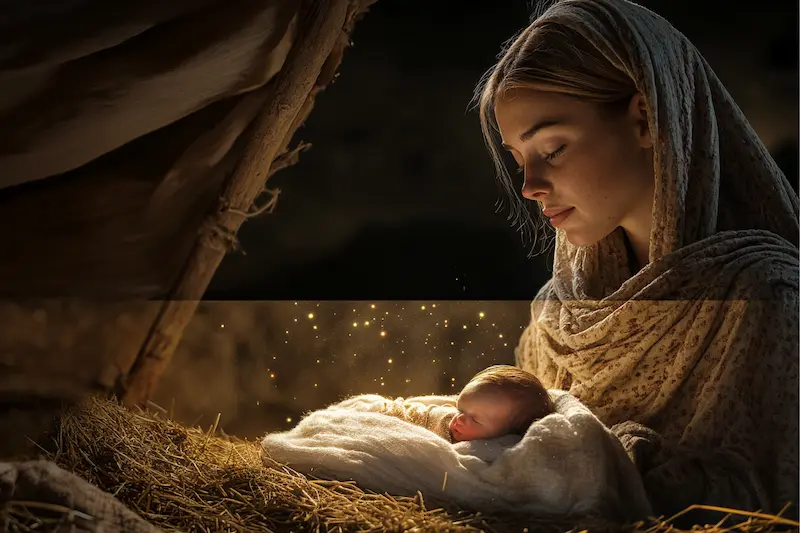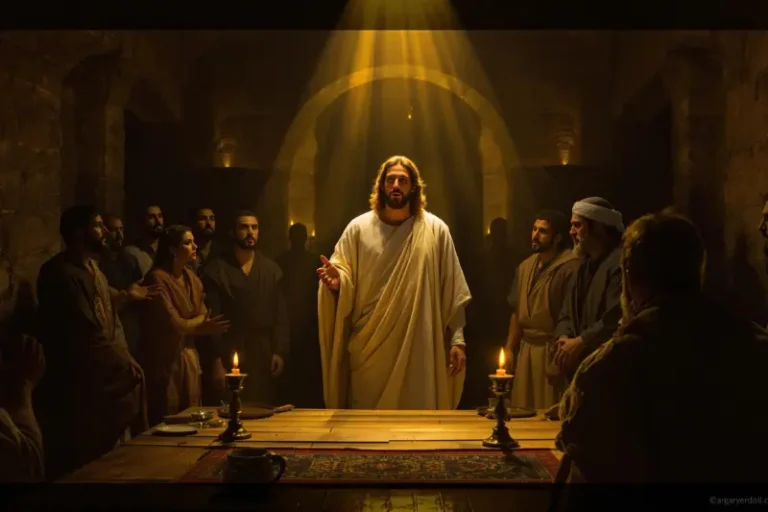Did You Know? The Incarnation Didn’t Happen on Christmas Day
And the Word was made flesh, and dwelt among us, (and we beheld his glory, the glory as of the only begotten of the Father,) full of grace and truth. (John 1:14, KJV)

When did God become flesh? If your answer is Christmas Day, you’ve missed a profound truth about the incarnation. The Word became flesh not in Bethlehem but months earlier in a humble home in Nazareth, at the moment of conception in Mary’s womb. Understanding this truth unveils deep insights into the miracle of the incarnation, the wonder of human birth, and how these events intertwine to fulfill God’s redemptive plan.
It began when the angel Gabriel announced to Mary that she would conceive a son, not by natural means but by the power of the Holy Spirit. In that season the eternal Word, through whom all things were made, became a single human cell—a zygote. This miraculous moment marked the beginning of the incarnation, as the God of the universe became fully human while remaining fully divine.
The implications of this truth are extraordinary: that single cell in Mary’s womb at the incarnation was fully God. Please pause and reflect on this.
For nine months following the incarnation, God developed in Mary’s womb just like every other human baby. He had not yet been formally called Jesus, though the angel had already announced that this would be His name. In the womb, He was simply the God-Man. Then, on that first Christmas Day, Mary entered labor, and Jesus was born. He moved from the womb to the world. Here is the first astonishing event of that day: God took His first breath as a human being—and yes, He cried as His lungs filled with air, just like any other baby.
Though the incarnation is certainly integral to the Christmas story, it did not occur on Christmas Day. The incarnation was an invisible act, but its effects slowly became visible. First, pregnancy: Mary’s growing abdomen was a sign to the world that something had happened (a baby was within) and that something remarkable was about to happen—a baby would soon be born!
The birth of Jesus was the culmination, the final fulfillment of the act of the incarnation. It was when God, who was already flesh, began living independently as a Human Being—not merely as a living soul like Adam, but as a quickening spirit!
Christmas showcases not only the demonstration of God’s love but also the wonder of His divine operations.
Meditate
How does understanding the incarnation from conception to birth deepen your appreciation of God’s humility and love?
Act on the Word
As you celebrate Christmas, take time to share this profound truth with others, helping them see the fullness of God’s love in the incarnation.
Pray
Thank the Father for the miracle of the incarnation, and ask Him to help you share its wonder with others.
Recommended Read
- The mystery of the incarnation
- How the Holy Spirit Orchestrated the Miracle of Christmas
- Missing Christ at Christmas: How the Religious Spirit Blinds Us to the Manger
- How Angels Celebrate Christmas in Heaven
- Thou Shalt Call His Name JESUS
- View All Deshen Daily Devotionals
Free Mini E-book: From Spiritual Dryness to Flourishing





